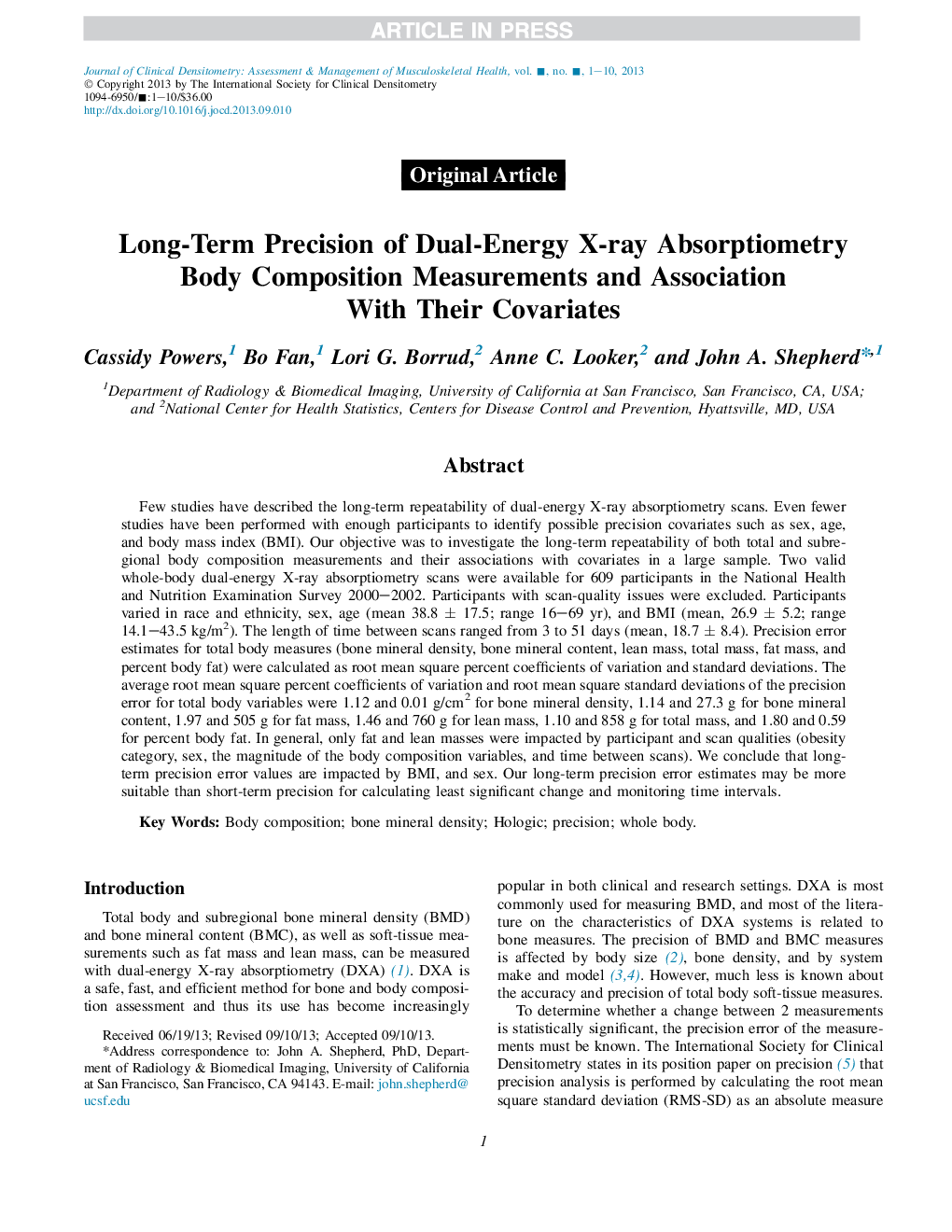| کد مقاله | کد نشریه | سال انتشار | مقاله انگلیسی | نسخه تمام متن |
|---|---|---|---|---|
| 10168033 | 1208242 | 2015 | 10 صفحه PDF | دانلود رایگان |
عنوان انگلیسی مقاله ISI
Long-Term Precision of Dual-Energy X-ray Absorptiometry Body Composition Measurements and Association With Their Covariates
ترجمه فارسی عنوان
دقت طولانی مدت اندازه گیری ترکیب ترکیبات جذب اشعه ایکس دوگانه انرژی و ارتباط آنها با کوواریات
دانلود مقاله + سفارش ترجمه
دانلود مقاله ISI انگلیسی
رایگان برای ایرانیان
کلمات کلیدی
موضوعات مرتبط
علوم پزشکی و سلامت
پزشکی و دندانپزشکی
غدد درون ریز، دیابت و متابولیسم
چکیده انگلیسی
Few studies have described the long-term repeatability of dual-energy X-ray absorptiometry scans. Even fewer studies have been performed with enough participants to identify possible precision covariates such as sex, age, and body mass index (BMI). Our objective was to investigate the long-term repeatability of both total and subregional body composition measurements and their associations with covariates in a large sample. Two valid whole-body dual-energy X-ray absorptiometry scans were available for 609 participants in the National Health and Nutrition Examination Survey 2000-2002. Participants with scan-quality issues were excluded. Participants varied in race and ethnicity, sex, age (mean 38.8 ± 17.5; range 16-69 yr), and BMI (mean, 26.9 ± 5.2; range 14.1-43.5 kg/m2). The length of time between scans ranged from 3 to 51 days (mean, 18.7 ± 8.4). Precision error estimates for total body measures (bone mineral density, bone mineral content, lean mass, total mass, fat mass, and percent body fat) were calculated as root mean square percent coefficients of variation and standard deviations. The average root mean square percent coefficients of variation and root mean square standard deviations of the precision error for total body variables were 1.12 and 0.01 g/cm2 for bone mineral density, 1.14 and 27.3 g for bone mineral content, 1.97 and 505 g for fat mass, 1.46 and 760 g for lean mass, 1.10 and 858 g for total mass, and 1.80 and 0.59 for percent body fat. In general, only fat and lean masses were impacted by participant and scan qualities (obesity category, sex, the magnitude of the body composition variables, and time between scans). We conclude that long-term precision error values are impacted by BMI, and sex. Our long-term precision error estimates may be more suitable than short-term precision for calculating least significant change and monitoring time intervals.
ناشر
Database: Elsevier - ScienceDirect (ساینس دایرکت)
Journal: Journal of Clinical Densitometry - Volume 18, Issue 1, January 2015, Pages 76-85
Journal: Journal of Clinical Densitometry - Volume 18, Issue 1, January 2015, Pages 76-85
نویسندگان
Cassidy Powers, Bo Fan, Lori G. Borrud, Anne C. Looker, John A. Shepherd,
